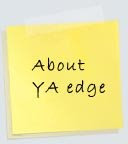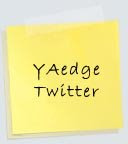There has been a lot of talk the past week regarding the price of ebooks thanks to Amazon and Macmillian Publishing. If you haven't heard or read about Amazon pulling all Macmillian books off their site this past weekend (as well as samples off people's Kindles), you can get caught up on the story by reading this amazing blog post about it by Scott Westerfeld.
I'm not going to choose sides, who I think is right and who is wrong. To be honest, I think that both sides have their argument and deserve to be heard. I am going to talk about prices of ebooks and what I feel is a respectable prices for a digital equivalent to some of my favorite books.
The whole debate has spread to many blogs and message boards, including a nook message board that I regularly follow now that I'm a nook owner. Not to trail off topic, but even if you don't have an ereader, there are some great people/discussions going on about good books in general.
Anyway, back to the whole debate of ebook pricing. I didn't know what I would write my blog post about today until I read a few comments on that message board regarding the Amazon vs. Macmillian fight. I found myself quickly responding, jumping on my soapbox so quickly, I'm surprised I didn't twist my virtual ankle.
It seems a lot of owners of ereaders believe ebook should be cheaper than other versions of said book. I agree with that, but just how cheap? While most people agree that $10 is a fair price for an ebook (and I tend to agree), one poster mentioned that they believe they should be no more than a dollar...and that's when I had to jump into the thread with my own post, which was as follows:
It takes a write/author a year or more to write and edit their stories. Take into consideration everything that goes into making the book beyond just the physical printing. You need the author, agent, editor, proofreader, type setter, marketing, cover designer...the list goes ON AND ON. They don't just take the Word file (for example) and change it to epub or whatever format of the choosing. If an average reader understood how much goes into making a book, you'd be dumbfounded. I'm currently shopping my manuscript to agents. I've worked on it since March 2008 and it is now in draft 8. I worked on it every single day for over a year straight. That is before anything happens to it in the publishing world. That's just trying to get it to a quality high enough to start querying agents.
So, for the person who said that it should cost a dollar, tell me, is there something in your life that you put years into that you don't think deserves to be sold for more than a dollar? I've spent hours of sleepless nights working on my manuscript, let alone the blood, sweat and tears (literally) it has taken to get to the point it is at.
Author gets a very small percent of the money spent by the consumer on the book. When their portion is divided out (which is smaller for ebooks than it is for printed books in most cases), they then give (usually) 15% of that to their agent.
Of course, all of that also goes into a book that is printed, but several of the steps have to be formated for it to look nice and pretty on your nook, Kindle, etc. Why do you think most scanned books, pdfs, etc look like crap on ereaders and the "real" ebooks don't.
I just don't get why people think that just because it's digital they can get everything free. No one thinks beyond their pocket book that a group of people put hard hours in to make it.
I'll get off my soapbox now. Carry on.
Now, that may not be the best post I've ever written on a message board thread, but it came from disbelief and passion. I believe ebooks should be cheaper than hardback books. But ONE DOLLAR? Insanity. But, it got me thinking, how much is an ebook worth and what can we look to for pricing?
I think that $10 is reasonable as I stated above. I compare it to the price of paperbacks. They are cheaper than hardbacks, and rightfully so. I also understand why some ebooks come out after the hardback release. Isn't that like books that are both in paperback and hardback? If they were released at the same time, wouldn't most people buy the cheaper option, especially in this economy? Of course they would.
Anyway, I will now climb off my soap box, but I thought it was an interesting topic. Why do you think people expect digital versions of things (ebooks, smartphone applications, etc) to be free or next to nothing and what do you think is a good price for ebooks?
Questions for Aprilynne Pike!
16 years ago











